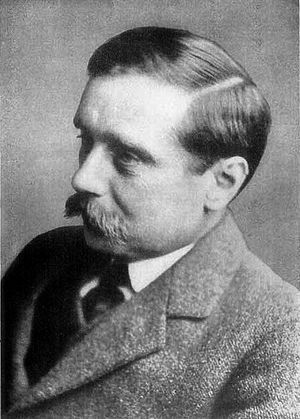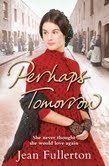Stuart Aken's Blog, page 326
March 1, 2011
Stuart's Daily Word Spot: Label
 Image via Wikipedia
Image via WikipediaLabel: noun - a strip or band, fillet, ribbon; a small piece of paper fixed to a document as a note, a codicil; a slip of paper, cardboard, metal, etc., fixed to something to carry information, instructions, etc., a piece of fabric sewn inside a garment bearing a name, size, etc; a circular piece of paper on the centre of a record giving details; short phrase or name applied to someone or something; brand name; a branded product or its manufacturer; a recording company making records under a specific name; a substance (an isotope or dye) used to identify some other chemical substance: verb – the act of applying a name tag or chemical identifier to something or someone.
'Gerald unashamedly sought the label before he would even contemplate wearing an item; for him, the name of the maker was more important than the intrinsic value or look of the garment so that friends often accused him of being a walking advert for his favourite designers.'
'Don't you dare label me a 'thief' just because I habitually download music, books and pictures without paying for them.' said Sandra.

Published on March 01, 2011 15:00
February 28, 2011
Stuart's Daily Word Spot: Kaleidoscope
 Image via Wikipedia
Image via WikipediaKaleidoscope: noun – a toy made of a tube containing mirrors and bits of coloured glass or paper which make constantly changing patterns of coloured reflections as the observer looks in and rotates the tube; an ever-changing group of bright colours or coloured objects; something constantly shifting and changing: verb - appear as in a kaleidoscope; move in a kaleidoscopic manner.
'Witnessing the struggles of the children emerging from the terror of imprisonment into the light and air of freedom sent a kaleidoscope of emotions through Sarah as she considered the dread they'd experienced turning to joy and exultation.'
'A fitful breeze made the multicoloured leaves of the New England trees, in the Fall, kaleidoscope as they twisted, turned and trembled in the ever-changing currents of air.'

Published on February 28, 2011 15:00
February 27, 2011
Stuart's Daily Word Spot: Jabble
Jabble: noun – Scottish - slight agitation of water, splashing in small waves or ripples.
'Kerry's toes, wiggling in the beck, caused a jabble, disturbing the water lily pads enough to eject a small frog, which she plucked from the water with delicate fingers, brought to her sweet and sensuous lips, and bit in two.'

Published on February 27, 2011 15:00
February 26, 2011
How to Buy Ebooks Easily, Using Twitter
Just click on the link via the post title and you'll find a short feature to help you with this. it allows you to find, download, sample or buy ebooks in about 2 clicks.
Published on February 26, 2011 17:57
Stuart's Daily Word Spot: Iambic
 Image via Wikipedia
Image via WikipediaIambic: adjective - characterized by, or based on iambuses, of a poet using iambic metres: noun - an iambic foot or poem, a metrical unit with unstressed-stressed syllables.
This term is used to describe a classical type of verse, in which a short syllable is followed by a long one, unaccented. Shakespeare is usually considered to have written in iambic pentameter, though not all his lines follow the rule when spoken in a natural voice. But, I can do no better here than quote the undisputed master.
And Gentlemen in England now abedShall think themselves accursed they were not here,And hold their manhood cheap, whiles any speaksThat fought with us upon Saint Crispin's day.
(Shakespeare, Henry V, act IV, scene III)

Published on February 26, 2011 15:00
February 25, 2011
Edit Temporarily Suspended.
 Image via WikipediaToday, I haven't even looked at the fantasy. Writers have to live as well, you know. So, today, I've had my hair cut, which has stopped me turning into a living copy of the missing link (well, almost, anyway). Also, my mobile phone decided to have a fit (it was free with something I bought a couple of years ago, so no real loss) but I had to buy a new one. And then, having discussed the issue for the past half century, my wife and I decided it was probably time we had a new bed. Of course, no hope of such a purchase in this small market town, so we had to travel. In 2 weeks, with luck, we'll start spending nights in the blissful comfort of memory foam. Whatever happened to brass bedsteads and straw filled mattresses, that's what I want to know.
Image via WikipediaToday, I haven't even looked at the fantasy. Writers have to live as well, you know. So, today, I've had my hair cut, which has stopped me turning into a living copy of the missing link (well, almost, anyway). Also, my mobile phone decided to have a fit (it was free with something I bought a couple of years ago, so no real loss) but I had to buy a new one. And then, having discussed the issue for the past half century, my wife and I decided it was probably time we had a new bed. Of course, no hope of such a purchase in this small market town, so we had to travel. In 2 weeks, with luck, we'll start spending nights in the blissful comfort of memory foam. Whatever happened to brass bedsteads and straw filled mattresses, that's what I want to know.Also, as those of you who have been paying attention will recall, I have reached the conclusion of book 1 and need to write an entire new chapter to bring book 2 to those who might try to read it before reading book 1 (there are such folk about, you know).
And, on top of all this, I'm pooped, weary, tired, exhausted and knackered. So, I'm going to retire to the sitting room, pour a glass or two of the vintage claret my writing group bought me for editing the anthology, and watch QI, Mastermind and whatever other fare the TV producers care to toss in my direction. So, I'll bid you all a good night.

Published on February 25, 2011 20:25
Stuart's Daily Word Spot: Haberdasher
 Image via Wikipedia
Image via WikipediaHaberdasher: noun - dealer in household items, in hats and caps, in small things related to dress; thread, tape, ribbon, buttons etc.
'If I remember correctly, in H.G. Wells The History of Mr Polly, the eponymous hero worked for a time as a haberdasher and, in selling items for her clothing, meet there his first wife.'

Published on February 25, 2011 15:00
February 24, 2011
Edit Hits a Highspot
[image error]
Image via WikipediaToday, I finished at chapter 43, page 418 and discovered, quite unexpectedly, this was a place I could end the first volume. All three threads of the interwoven story come to natural ends, of one sort or another, at this point and all end with the knowledge that there must be more to come, almost on cliff-hangers, in fact.
Of course, this means I'll have to now write an introductory chapter for book 2 before I can properly continue with the edit. It also means I'll have to merge part of the old volume 2 with this new version, but that brings the completion of volume 2 that much nearer, which is good, since I intend to start looking for agents/publishers only when I have both of the first 2 books ready to offer.
On the way, this afternoon, I found a way to incorporate some of the historical information I'd gleaned from the BBC's history documentary I have been following, A History of Ancient Britain by Neil Oliver. By pure good fortune, in the episode we'd recorded from last night, I also discovered a fact about funeral pyres that meant I had to modify part of the penultimate chapter to make it more credible. It was relatively easily done, but without that knowledge, I might well have ended up with egg on my face. So, thank you Neil for your experiment. Just goes to show: research can always be improved upon, no matter how thorough you think you've been.


Of course, this means I'll have to now write an introductory chapter for book 2 before I can properly continue with the edit. It also means I'll have to merge part of the old volume 2 with this new version, but that brings the completion of volume 2 that much nearer, which is good, since I intend to start looking for agents/publishers only when I have both of the first 2 books ready to offer.
On the way, this afternoon, I found a way to incorporate some of the historical information I'd gleaned from the BBC's history documentary I have been following, A History of Ancient Britain by Neil Oliver. By pure good fortune, in the episode we'd recorded from last night, I also discovered a fact about funeral pyres that meant I had to modify part of the penultimate chapter to make it more credible. It was relatively easily done, but without that knowledge, I might well have ended up with egg on my face. So, thank you Neil for your experiment. Just goes to show: research can always be improved upon, no matter how thorough you think you've been.

Published on February 24, 2011 20:52
Author Interview with Jean Fullerton
 Jean Fullerton was born within the sound of Bow Bells and still lives in the East End of London. She is a qualified District Nurse, university lecturer and started writing in 2002. She joined the Romantic Novelist Association in 2003, under their New Writers' Scheme, and has never looked back. Her debut novel, No Cure for Love won the Harry Bowling prize in 2006, which gained her an agent and her first two-book contract with Orion. No Cure for Love was published in December 2008. Her second novel, A Glimpse at Happiness was shortlisted for the 2010 Romantic Novel of the Year. Her third book, Perhaps Tomorrow, is just released and her fourth Hard Lessons is due for release early in 2012. She is currently working on her fifth.
Jean Fullerton was born within the sound of Bow Bells and still lives in the East End of London. She is a qualified District Nurse, university lecturer and started writing in 2002. She joined the Romantic Novelist Association in 2003, under their New Writers' Scheme, and has never looked back. Her debut novel, No Cure for Love won the Harry Bowling prize in 2006, which gained her an agent and her first two-book contract with Orion. No Cure for Love was published in December 2008. Her second novel, A Glimpse at Happiness was shortlisted for the 2010 Romantic Novel of the Year. Her third book, Perhaps Tomorrow, is just released and her fourth Hard Lessons is due for release early in 2012. She is currently working on her fifth. She is a well-known figure in East London and Essex as she has undertaken dozen of speaking engagement at women's groups, rotary clubs and libraries throughout the region. She has also given talks and workshops at numerous writers' conferences, including Winchester, Get Writing and York.
Jean's story-telling and attention to detail have earned her generous praise. The Daily Express described A Glimpse at Happiness as 'A real page-turner with larger-than-life characters and convincing period detail' while the Daily Mail called it 'Well-written and atmospheric'. The Historical Novel Society reviewer stated, 'Underlying sexual tension and cleverly handled introspection make this a real page-turner.'
How did you get started?
I am District Nurse and eight years ago I was a manager in the NHS in charge six community clinics when my boss sent me on a stress management course. In order to unwind at the end of the working day the tutor advised us to take up a hobby. A good friend of mine had just signed up for a creative writing course and as a life-long reader of all types of historical fiction I thought I'd have a bash at writing a story- just for fun. You know. Nothing serious! Anyhow, I sketched out a rough plot on a sheet of A 4 and opened my lap top on the kitchen table and typed chapter one. After just a dozen or so pages the story just seemed to pour out as if someone had shaken up a bottle of cola and undone the top.
I finished that book in about four months – it takes me considerably longer now I can tell you- then I started another. Again the story flowed. Of course, I had no idea about technique or formatting, I learnt that later, I was just telling the story.
After I'd written three books my hero-at-home encouraged me to send one off to see if they were any good, which I did. With trembling hands and naive dreams of agents and editors fighting over my brilliant book, I would post a handful of submission out on Monday morning only to have them fall back through my letter box on Thursday with a photo copied rejection letter shoved inside. But
Tell us about your latest book.
 My latest book Perhaps Tomorrow is set in 1847. The heroine is Mattie Maguire and life has not been easy for her since her husband died three years ago. She has struggled to keep the family's East End coal business solvent, but now everything that Mattie has worked for is under threat because of corrupt local benefactor Amos Stebbins.
My latest book Perhaps Tomorrow is set in 1847. The heroine is Mattie Maguire and life has not been easy for her since her husband died three years ago. She has struggled to keep the family's East End coal business solvent, but now everything that Mattie has worked for is under threat because of corrupt local benefactor Amos Stebbins. Fugitive Nathaniel Tate is a man who knows just how ruthless Amos can be: he was wrongfully imprisoned for embezzling money that Amos stole. After learning of his family's tragic death, Nathaniel tracks Amos to Maguire's, it is there that Nathaniel meets Mattie. As Nathaniel begins to help Mattie turn around the fortunes of the business, and the pair grow ever closer, he starts to think less of revenge and more of the possibility of a new future with Mattie.
How did you come to write this particular book?
The idea for Mattie's story came to me as I was writing the previous book, A Glimpse at Happiness, as I felt she needed a story and a handsome hero of her own.
If you have a favourite character in your novel, why that particular one?
My favourite characters are the ones I'm writing at the moment. They have to be otherwise I could get myself totally involved with their stories. However, I am in love with all my heroes but don't tell my husband.
Where and when is your novel set and why did you make these specific choices?
I'm a native Londoner, a cockney in fact, I grew up alongside the river and docks. My family have lived in the East End around Wapping and Shadwell since the 1820s and I love the history of the place. I set my heroine in No Cure for Love, Ellen O'Casey, in old one up one down house I live in when I was a child -there is a picture of me as a child outside the old house on my website. I've used actual streets and place in all of my books and there is a map in the front of my books of the area where the story is set.
East London was multi-cultural before the phrase was ever coined and I want to bring the vibrate community alive with my stories and show the reader just what it was like. The river, docks, police and overcrowded and impoverished streets are all wonderfully rich backdrops for any story and it was most natural place for me to set mine.
Do you write every day? What is your work schedule?
I try to write every day and aim for 1500 words which is a about the length of most of my scenes. My day job is teaching nursing studies at a London university so I dash in from work at 4.30 and have to do the domestic goddess thing, which I'm appalling at. Have dinner at 6ish then I disappear into my office for 2 hours to write. I usual surface about 9.00 to 9.30 and watch a bit of TV then when the Hero-at-Home goes to bed I'm back on my computer until 1am.
How did you get your agent and publisher?
In 2003 I joined the RNA via the New Writers Scheme and sent in my second novel. Thank goodness it landed on the mat of Rachel Summerson who in her reader's report opened by saying 'before I say anything else you have what it takes to be a novelist because you create believable characters and put them in gripping plots that makes the reader want to turn the page but…' I still cherish that report. But! I suddenly realised I knew nothing about the craft of writing, formatting or any of the other skills that are essential to produce a publishable novel. So I spent the next 5 years learning them.After writing 10 books, submitting to umpteen agents and editors I finally wrote No Cure for Love which won the Harry Bowling Prize in 2006. That got me my agent and first two-book deal with Orion and when A Glimpse at Happiness was shortlisted for the 2010 Romantic Novel of the Year, I got my second two-book contract. Winning the Harry Bowling was my big-break but the hard work goes on. In fact, it never stops.
How can people buy your books?
You can get it from Orion, my publishers, http://www.orionbooks.co.uk/books/perhaps-tomorrow-paperback but also from Amazon or the Book Depository but also from Waterstones and any good independent bookshop. It's also available on Kindle.
How do you set about writing a piece?
I start with the main two characters and then sketch out a plot. I often have odd scenes or incidents whizzing around in my head and I try to anchor them down to where they might fit in the story. I actual put a three-column table onto a word document and plot out each scene including whose point of view it's and a brief description of what happens. I have multi points of views in my novels so I then colour code them. Red for heroine, blue for hero green for villain etc. I can look at the plot as a visual representation and see if it's balance between the different PoV. I also number the scenes so I can find my place quickly as I go through. Of course, it's not written in stone and I change it as the plot twists and turns but at least it keeps me going in the right direction.
Beginning writers make many mistakes; what do you think is the most harmful?
Thinking they are undiscovered genius and the publishing world is waiting for their manuscript. Sorry, folks, it's not.
To what extent are grammar and spelling important to a writer?
The most important thing for a writer is to weave a spell-binding story but in order to have your manuscript even looked at the grammar and spelling has to be 100%. I'm dyslexic and this was a particular challenge to me. I had to work a night shift in a local nursing home every other week to afford to have my manuscripts copy edited in full before I could submit them. Now as a published author I do have lovely line and copy editors who help with the technical side and after writing over 2,000,000 words I have improved.
How much revision of your MS do you do before you send it off?
I go through my manuscript at least four times before I send it off. Not just to catch missed commas or miss-spelt words but to make sure all the plot is believable, the characters hold together and there isn't a twist I've missed. It is always with a view to making the story better.
To what extent do you think genre is useful in the publishing world?
We write stories, it's the industry who puts them into genre but that said the fact of the matter is publishing house reps have to sell to Waterstones, and the like, and bookshops want to know where they should put it on the shelves. You might think this is unfair but and although your murder mystery might be very different from others it's more likely to sell if placed in the crime section.
How do you know where to begin any given story?
One thing beginners also do is start the story with the main characters back story. (I did it myself). We might need to know that he/she their previous life to explain their current actions but we need to start with the current action. The first five pages are so important to hook your reader in I often rewrite them again once I've finished the whole story.
What do you think an editor is looking for in a good novel?
It doesn't matter whether you're writing romance, sci-fi or a political thriller what all editors of popular fiction are looking for is a riveting, page-turning story.
Do you have support, either from family and friends or a writing group?
I have a 110% support from my hero-at-home and three daughters plus I belong to the Romantic Novelist Association and the Historical Novel Association both of whom have regular meetings where I can chat to other authors. Being a writer is a lonely business. It's you, your head and the computer most of the time, so it's good to get out.
Is presentation of the MS as important as most agents and publishers suggest?
It's not important, IT IS VITAL. Don't give them an excuse to reject you. If you can't be bothered to do as they request why should they be bothered look at your manuscripts? It also shows lack of professionalism and could be construed as arrogance. Every agent/editor has hundreds of submission sent to them and if you can't do as they ask they will move onto someone who can.
How long does it normally take you to write a novel?
As I still have a day job, it takes me 6 months to write the first draft then another two to polish, correct and rewrite. I then send it to my agent and she sends me back her comments after which there is usually another months of rewriting so probably ten months in all before the publishers get it. Then it comes back from them with line edits so I have to halt my current book for a month to sort them out.
If there's a single aspect to writing that really frustrates you, what is it?
There are two actually. The first is sitting down and starting a new scene. It's not that I don't know what I'm going to write it's just getting into the swing of it and I can usually do that after a paragraph or two. But the worse part of writing for me, as it must be for many writers, is the edits where you have to sometimes deconstruct your plot or rework characters. Mentally I've done with the story and my head is already in the next book, but the editing has to be done.
Is there any aspect of writing that you really enjoy?
I really enjoy when a scene goes right or when I make myself laugh with a funny incident in the story but the best bit about writing is when a reader emails me and says they sat up all night reading my book because they couldn't put the book down. That's the sum of why I write.
Do you think writing is a natural gift or an acquired skill?
Truthfully, I think story-telling is a natural gift like painting and music but writing a story is an acquired skill, which has to be practiced and improved upon with everything you write. What single piece of advice would you give to writers still hoping to be published?
Believe in yourself. Don't try to chase bandwagons. Learn to accept and utilize constructive criticism and be ready to rewrite you book. Work hard and never give up but if you're doing it to make money then take promotion at work: it's easier.
What are you writing now? I'm just doing the research and plot prep for my next book that I will be starting in a week or so. It's the first book of my next contract and I'm very excited about it. It's still set in East London but I've jumped forward 100 years into the immediate post-war period. The heroine is the local district nurse and the story follows her as she goes about her rounds.
Given unlimited resources, what would be your ideal writing environment?
I already have my ideal writing environment so I don't crave an isolated country cottage or beachside veranda in the sun. I have my own office with all my research books to hand.
Do you have a website or a blog that readers can visit?
I certainly do. It's at www.jeanfullerton.com. You can see pictures of the actual places where I set my stories plus bits about me and my writing. And if you do to read any of my books please email me via my website and let me know if you enjoyed it. Lastly, thank you Stuart for giving me an opportunity to be interviewed on your blog.

Published on February 24, 2011 16:30
Stuart's Daily Word Spot: Gabber
Gabber: noun - chatterer, prattler: verb - talk volubly, jabber.
'Mr Blenkinsop is such a gabber; always prattling on about the defects of others, when, heaven knows, he has faults enough of his own.'
'Sarah will gabber on and on and on; saying nothing but using all the words in her vocabulary to express it.'
Published on February 24, 2011 15:00



